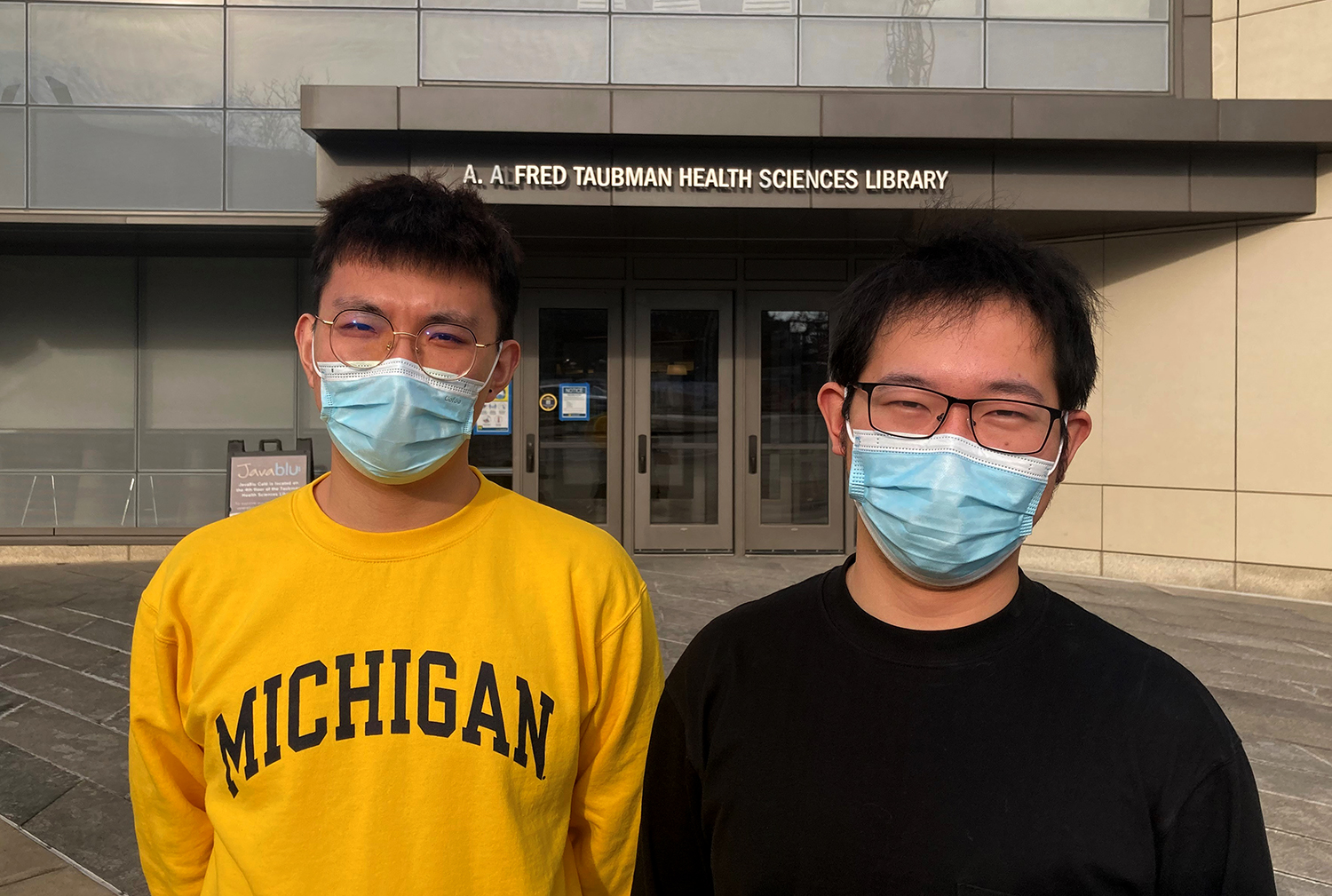
Hongyu Liu and Jiaao Su were expected to arrive at UMMS in 2020 to begin their five-year program, then came COVID-19 with its myriad travel restrictions and related disruptions.
“I watched many of my classmates prepare to graduate and enter the workforce. I had opportunities to do that also,” said Liu, who is in the final year of an eight-year medical program at Xiangya School of Medicine, part of Central South University. (Medical education in China is an eight-year path that begins immediately after high school.)
“There was plenty of time to doubt whether coming to U-M was the right choice. But the extra time also helped me focus and understand my motivations better,” Liu said.
Liu and fellow student Su, a seventh-year med student, were among the first to apply for the new program after its announcement in 2019. They will take courses through the UMMS Program in Biomedical Sciences (PIBS) and spend five years in the research lab of a UMMS faculty mentor, earning their PhD from U-M before returning to China to complete their MD.
Xiangya has long had a two-year research training program initiative with UMMS, but those students do not earn a PhD degree. The five-year initiative marks the first-of-its-kind dual-degree program offered through the Xiangya School of Medicine.
“Since I was a child, I had a strong passion to ask why. I need to know the reasons and logic and I like to discover how things work,” said Su of his interest in learning research. “Everyone can see how great this opportunity is (to come to U-M) and how I should cherish it. When I met my mentors, the way they talk about research – their eyes light up. Their passion is clear and I want to learn from them.”
The ongoing pandemic has severely curtailed international travel across the medical school (both incoming and outgoing). Only recently have restrictions begun to relax, and even then under very limited circumstances; experiences through the Xiangya partnership are long-term, non-clinical, organized with a well-established institutional partner.
“I’m very proud of Michigan Medicine for supporting this program through what has been a difficult period, and grateful to our participants and their mentors for their trust and patience in us while we worked through the details,” said Eugene Chen, Professor of Cardiovascular Medicine Eugene Chen, one of the faculty leaders behind the partnership with Xiangya. “These students represent the very best of the best from their home institution. Their presence at Michigan Medicine benefits our research community and our mission.”
After more than 12 long months of delays, both students arrived in late November—in time to experience two firsts: American Thanksgiving and snow.
“I always have had this dream to combine the clinical and research skills. This passion toward research overrides the waiting,” said Liu. “After all of the obstacles, to finally be here feels amazing.”
